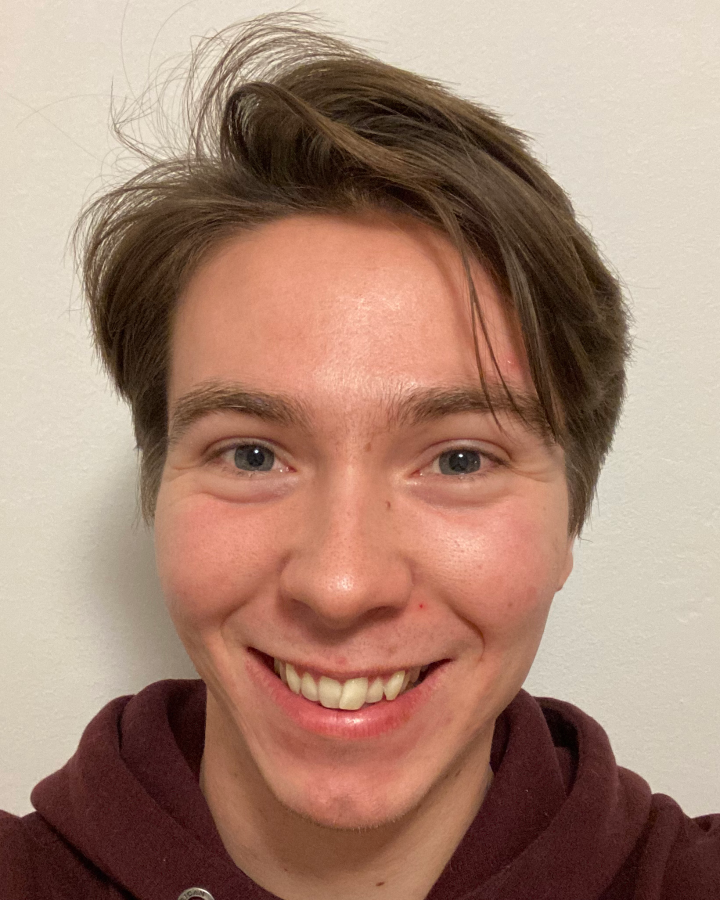Gerti Kappel
O.Univ.Prof.in Dipl.-Ing.in
Mag.a Dr.in techn.
Gerti Kappel
- Email: gertrude.kappel@tuwien.ac.at
- Phone: +43-1-58801-18870
- Office: HC0215 (1040 Wien, Favoritenstrasse 9)
- About:
Gerti Kappel is full professor at the Institute of Information Systems Engineering at TU Wien, chairing the Business Informatics Group. Prior to that, from 1993 to 2001, she was a full professor of computer science (database systems) and head of the Department of Information Systems at the Johannes Kepler University Linz.
From 2016 to 2019, she was a member of the dean’s team of the Faculty of Informatics responsible for research, diversity, and financial affairs. Since the beginning of 2020 she acts as the dean of the Faculty of Informatics at TU Wien.
Her current research interests include Model Engineering, Web Engineering, and Process Engineering, with a special emphasis on cyber-physical production systems. Striving for the unity of research and teaching, she co-authored and co-edited among others „UML@Work“ (dpunkt.verlag, 3rd ed, 2005), „UML@Classroom“ (Springer, 2015), and „Web Engineering“ (Wiley, 2006).
- Orcid: 0000-0002-4758-9436
- Keywords: Process Engineering, Data Engineering, Services Engineering, UML and XML, Business Process Management (BPM), Model Engineering, Workflow Management Systems (WFMS), Web Engineering, Object Orientation, Software Engineering
- Roles: Head of Services, Full Professor
Publications
QoS-Based Task Scheduling in Crowdsourcing Environments
 Roman Khazankin
Roman Khazankin Harald Psaier
Harald Psaier Daniel Schall
Daniel Schall Schahram Dustdar
Schahram Dustdar Zakaria Maamar
Zakaria Maamar Hamid Reza Motahari Nezhad
Hamid Reza Motahari NezhadKeywords:
Astract: Crowdsourcing has emerged as an important paradigm in human-problem solving techniques on the Web. One application of crowdsourcing is to outsource certain tasks to the crowd that are difficult to implement as solutions based on software services only. Another benefit of crowdsourcing is the on-demand allocation of a flexible workforce.
Businesses may outsource certain tasks to the crowd based on
workload variations. The paper addresses the monitoring of crowd members´characteristics and the effective use of monitored data to improve the quality of work. Here we propose the extensions of standards such as Web Service Level Agreement (WSLA) to settle quality guarantees between crowd consumers and the crowdsourcing platform. Based on negotiated agreements, we provide a skill-based crowd scheduling algorithm. We evaluate our approach through simulations.
Khazankin, R., Psaier, H., Schall, D., & Dustdar, S. (2011). QoS-Based Task Scheduling in Crowdsourcing Environments. In G. Kappel, Z. Maamar, & H. R. Motahari Nezhad (Eds.), Service Oriented Computing: 9th International Conference, ICSOC 2011 (pp. 297–311). Springer-Verlag Berlin Heidelberg. https://doi.org/10.1007/978-3-642-25535-9_20
Keywords: Modellversionierung, kollaborative Modellierung, Konflikttoleranz, Modell-getriebene Softwareentwicklung
Astract: Model-driven software engineering (MDSE), which has recently gained momentum in academia as well as in industry, changed the way in which modern software systems are built. In MDSE, the task of programming, i.e., writing code in a textual programming language, is replaced by modeling in a language such as the Unified Modeling Language (UML). The powerful abstraction mechanisms of models are not only used for documentation purposes, but also for compiling executable code directly out of models. With the rise of MDSE, several problems solved for traditional software engineering became urgent again because well established solutions are not directly transferable from code to models.
Among others, the collaborative development of models is currently only limited supported by modeling tools and, consequently, it is mostly a one-(wo)man show. Especially in the field of model versioning, which supports the asynchronous modification of modeling artifacts by multiple developers, only first solutions start to emerge.
The urgent need for a suitable infrastructure supporting effective model versioning has been widely recognized by researchers as well as practitioners. Currently, however, there is a lack of empirical studies on the needs of software developers in practice concerning the collaborative development of software systems. The first contribution of this thesis tackles this problem and provides an extensive survey about versioning in practice by the means of an online questionnaire and qualitative expert interviews. One result of the empirical study shows that conflicts due to parallel modifications are considered harmful and, thus, developers try to avoid them. Conflicts, however, should not be seen as negative result of collaboration but as chance for discussing ideas and for improving the system under development. As consequence, the second contribution is a conflict-tolerant model versioning approach, where the developers may commit their changes in the central repository without worrying about possible conflicts. This approach merges two or more parallel versions by applying dedicated merge rules and, by this, it incorporates all modifications of the developers. This builds a good basis for discussing and resolving conflicts collaboratively. Finally, when resolving conflicts a high degree of user interaction is required. When setting models under version control with state-of-the art tools, however, conflicts are hardly accessible for the users. Also the empirical study has shown, that current version control systems lack for a dedicated representation and visualization.
Moreover, user support is required to better understand the reasons behind the conflicting changes. The third contribution tackles these deficiencies by visualizing occurred conflicts in terms of model annotations and enriching them automatically with additional meta information to better understand the parallel evolution of the model under development. The implemented prototype is evaluated by means of a quasi-experimental study, which demonstrates the advantages of developing models in a collaborative manner.
Wieland, K. (2011). Conflict-tolerant model versioning [Dissertation, Technische Universität Wien]. reposiTUm. https://resolver.obvsg.at/urn:nbn:at:at-ubtuw:1-57048
Keywords: Model Transformation, Debugging, Testing
Astract: Modellgetriebene Softwareentwicklung rückt Modelle ins Zentrum des Softwareentwicklungsprozesses. Dadurch nehmen Modelle die Rolle von Objekten in der objektorientierten Softwareentwicklung ein. Durch diese zentrale Rolle entsteht die Notwendigkeit Transformationen zwischen Modellen durchzuführen. Analog zur traditionellen Softwareentwicklung sollen Modelltransformationen auf fundierte Sprachen undWerkzeuge zurück greifen können. Aktuelle Transformationssprachen fokussieren allerdings nur auf die Implementierungsphase und berücksichtigen weitere Phasen wie Analyse, Design, Testen und Fehlersuche nur unzureichend. Für die Analyse- und Designphase werden Mittel benötigt, die es dem Transformationsentwickler erlauben, die Anforderungen formal zu spezifizieren und diese dann in der Testphase gegen die implementierte Transformation zu validieren. Für den Fall, dass Anforderungen nicht erfüllt sind, werden Werkzeuge und Mechanismen zur Fehlersuche benötigt.
Aktuell verwendete Transformationssprachen bieten hierbei aber nur unzureichende Unterstützung, da sie nur Informationen bereit stellen, die von den jeweiligen Laufzeitumgebungen zur Verfügung gestellt werden. Da diese typischerweise in einer Programmiersprache wie z.B. Java entwickelt sind, bestehen solche Informationen meist nur aus Werten von Variablenbelegungen. Des Weiteren verstecken die auf niedrigem Abstraktionsniveau arbeitenden Laufzeitumgebungen die Ausführungssemantik der Transformation, was die Fehlersuche zusätzlich erschwert.
Um diese Einschränkungen aufzuheben, werden im Rahmen der Arbeit drei Hauptbeiträge erarbeitet. Als erster Beitrag wird die deklarative Sprache PAMOMO vorgestellt, die eine Spezifikation von Transformations-Kontrakten ermöglicht. Um zu testen, ob Transformationen die Kontrakte erfüllen, wird QVT Relations verwendet, um im Fehlerfall Information zu erhalten, die im weiterem für die Fehlersuche verwendet werden kann. Transformationsnetze stellen als zweiten Hauptbeitrag ein explizites Laufzeitmodell für Transformationen zur Verfügung und legen dadurch deren operationale Semantik offen.
Dieses Laufzeitmodell bildet damit die Grundlage für Methoden zur Unterstützung bei der Fehlersuche.
Zur Evaluierung der Arbeit werden Vergleiche zu bestehenden Arbeiten gezogen. Mittels Fallbeispielen wird die Anwendbarkeit der vorgestellten Konzepte gezeigt. Um die Laufzeitumgebung zu evaluieren, wird die Ausführungssemantik existierender Transformationssprachen auf Transformationsnetze abgebildet. Dadurch können auch diese Sprachen von den vorgeschlagenen Methoden zur Fehlersuche profitieren, was wiederum mittels Fallbeispielen gezeigt wird.
Schönböck, J. (2011). Testing and debugging of model transformations [Dissertation, Technische Universität Wien]. reposiTUm. https://resolver.obvsg.at/urn:nbn:at:at-ubtuw:1-55833
Keywords: Social networks, Reverse Engineering, Data schema, Facebook, Analyse, Twitter, LinkedIn, GooglePlus, Google+, JSON
Astract: Social networks on the Web have seen enormous growth over the past few years, leading to a truly widespread adoption. Every social network is focused on serving specific human needs. Most networkers are present in a number of different networks, which leads to scattered social content. The development of such Web-based platforms is in an early stadium, which result in short feature release cycles. The evolving data schemas and the different ways to access social data are resulting in tedious and error-prone development and maintenance processes of social applications.
In this master thesis, evolution, main characteristics and features of social networks are surveyed. Four platforms, namely Facebook, LinkedIn, Twitter and GooglePlus, are examined. Class diagrams of the data schemas, based on the official documentation, give an overview of these platforms. Each social network has its individualities of accessing the data. A widespread data authorization system is oAuth, available in two versions, which are explained in this master thesis and implemented in a social adaptor for a project called TheHiddenU, to enable an easy access to the social data. To realize this access, the information about the data schema is needed. Because of the incomplete documentation of the API, in this thesis a tool called Json2Ontology is developed for an automatic reverse engineering of the data schema offered by the social networks.
In the first step the tool uses the currently implemented REST Web services. The response of the Web service is transformed into sentences of a domain specific language of TheHiddenU (THUDSL), which represent social user profiles and enable the generation of Java classes for data access. Starting at one or more request URLs, the Json2Ontology tool analyze the Json response and search for navigation possibilities, which are represented as relationships. The goal is to extract as much information about the data structure as possible. The Json2Ontology tool has been evaluated by comparing the information of the created class diagrams with the generated data schema. The result depends on the authorized user and the amount of personal data. In case of Facebook, a real world test user has been used to find the data produced by real social interactions. The Json2Ontology tool found 79% of the classes and 80% of the attributes. Even more important are the the newly found classes (namely 7) and attributes (namely 162).
Different settings have been evaluated to find a well balanced configuration for the tool.
Munk, A. (2011). Model-based reverse engineering of social networks [Diploma Thesis, Technische Universität Wien]. reposiTUm. https://resolver.obvsg.at/urn:nbn:at:at-ubtuw:1-60570
User-guided information extraction from print-oriented documents
 Tamir Hassan
Tamir Hassan Georg Gottlob
Georg GottlobKeywords: wrapping, PDF, information extraction, print-oriented, document analysis, document understanding, graph matching
Astract: In recent years, a number of systems have been developed in the academic and commercial domain for wrapping, or user-guided information extraction, from Web sources. An important feature of Web documents is their inherent tree structure, which is used by wrapping systems such as the Lixto Visual Wrapper to locate instances of the data to be extracted. Because this tree structure somewhat represents the logical structure of the content, such wrapping methods work successfully.
This dissertation is concerned with extending these wrapping techniques to PDF documents. This is a challenging task, as the logical structure of a PDF is (usually) not explicitly available in the file. The use of document analysis and document understanding techniques to rediscover this structure from the layout conventions that are used in the document's presentation is therefore a central theme of this thesis.
We present two approaches to wrapping PDF documents: the conversion approach and the graph-based approach. The conversion approach is based on an automated, structured conversion of PDF documents into HTML, which are then used as input to the Lixto Visual Wrapper to extract the desired information. In this approach, we place particular emphasis on detecting tables and representing them in a structured manner in HTML.
The graph-based approach represents a novel method for specifying wrapping programs directly on the physical structure of the document.
Using an algorithm based on subgraph isomorphism, other instances of the data are found. As this approach is not reliant on the complete and accurate detection of structures in the document, it is more robust and enables a much wider range of documents to be wrapped. Because the physical structure is more intuitive for the user, this approach also enables wrapper programs to be created in a user friendly, interactive way.
Hassan, T. (2010). User-guided information extraction from print-oriented documents [Dissertation, Technische Universität Wien]. reposiTUm. https://resolver.obvsg.at/urn:nbn:at:at-ubtuw:1-31713
Teaching
Project in Computer Science 1
Semester: 2025S; Nr: 194.145; Type: PR; Hours: 4.0; Language: if required in English; View on TISSSeminar for Master Students in Business Informatics
Semester: 2024W; Nr: 180.779; Type: SE; Hours: 1.0; Language: English; View on TISSResearch Seminar
Semester: 2024W; Nr: 188.446; Type: SE; Hours: 2.0; Language: if required in English; View on TISSLiterature Seminar for PhD Students
Semester: 2024W; Nr: 188.512; Type: SE; Hours: 2.0; Language: German; View on TISSModel Engineering
Semester: 2024W; Nr: 188.923; Type: VU; Hours: 4.0; Language: English; View on TISSBachelor Thesis for Informatics and Business Informatics
Semester: 2024W; Nr: 188.926; Type: PR; Hours: 5.0; Language: if required in English; View on TISSScientific Research and Writing
Semester: 2024W; Nr: 193.052; Type: SE; Hours: 2.0; Language: German; View on TISSProject in Computer Science 1
Semester: 2024W; Nr: 194.145; Type: PR; Hours: 4.0; Language: if required in English; View on TISSSustainability in Computer Science
Semester: 2024W; Nr: 194.155; Type: VU; Hours: 2.0; Language: English; View on TISSProjects
Digitale Kompetenzen @ Parlament
Name: DKP; Title: Digitale Kompetenzen @ Parlament; Begins On: 2021-04-01; Ends On: 2021-09-30; Context: Parlamentsdirektion; View Project WebsiteIFC-Roundtrip und Plangrafiken
Name: IFC-Roundtrip und Plangrafiken; Title: IFC-Roundtrip und Plangrafiken; Begins On: 2019-01-01; Ends On: 2020-06-30; Context: tbw solutions ZT GesmbH; View Project WebsiteVienna Informatics Living Lab
Name: Vienna Informatics Living Lab; Title: Vienna Informatics Living Lab; Begins On: 2018-08-01; Ends On: 2019-07-31; Context: Vienna Business Agency (WAW); View Project WebsiteMulti-Paradigm Modelling for Cyber-Physical Systems (MPM4CPS)
Name: MPM4CPS; Title: Multi-Paradigm Modelling for Cyber-Physical Systems (MPM4CPS); Begins On: 2014-10-01; Ends On: 2019-05-31; Context: European Cooperation in Science and Technology (COST); View Project WebsiteCOSIMO: Collaborative Configuration Systems Integration and Modeling
Name: COSIMO; Title: COSIMO: Collaborative Configuration Systems Integration and Modeling; Begins On: 2014-01-01; Ends On: 2017-05-30; Context: Vienna Business Agency (WAW); View Project WebsiteARTIST: Advanced software-based seRvice provisioning and migraTIon of legacy Software
Name: ARTIST; Title: ARTIST: Advanced software-based seRvice provisioning and migraTIon of legacy Software; Begins On: 2012-10-01; Ends On: 2015-09-30; Context: European Commission; View Project WebsiteDARWIN - Model-driven Development and Evolution of Semantic Infrastructures
Name: DARWIN; Title: DARWIN - Model-driven Development and Evolution of Semantic Infrastructures; Begins On: 2012-03-01; Ends On: 2015-02-28; Context: Austrian Research Promotion Agency (FFG); View Project WebsiteTROPIC: A Framework for Model Transformations on Petri Nets in Color
Name: TROPIC; Title: TROPIC: A Framework for Model Transformations on Petri Nets in Color; Begins On: 2009-03-01; Ends On: 2012-08-31; Context: Austrian Science Fund (FWF); View Project WebsiteAMOR: Adaptable Model Versioning
Name: AMOR; Title: AMOR: Adaptable Model Versioning; Begins On: 2009-02-01; Ends On: 2011-09-30; Context: SparxSystems Software GmbH; View Project WebsiteDevelopment of a WEB-based database for the global administration of CAN-Data
Name: Rosenbauer-DB; Title: Development of a WEB-based database for the global administration of CAN-Data; Begins On: 2008-09-01; Ends On: 2009-04-30; Context: Rosenbauer; View Project WebsiteModel-Driven Web Engineering net
Name: MDWEnet; Title: Model-Driven Web Engineering net; Begins On: 2006-12-01; Ends On: 2010-12-31; Context: Johannes Kepler Universität Linz; View Project WebsiteTRACK and TRADE: Creating a Data Mart for Floating Car Data
Name: TRACK™ Title: TRACK and TRADE: Creating a Data Mart for Floating Car Data; Begins On: 2006-10-01; Ends On: 2008-09-30; Context: European Commission; View Project WebsiteModelCVS: A Semantic Infrastructure for Model-based Tool Integration
Name: ModelCVS; Title: ModelCVS: A Semantic Infrastructure for Model-based Tool Integration; Begins On: 2006-01-01; Ends On: 2007-12-31; Context: ARIKAN Productivity Group GesmbH; View Project WebsiteZELESSA: An Enabler for Real-time Business Intelligence
Name: ZELESSA; Title: ZELESSA: An Enabler for Real-time Business Intelligence; Begins On: 2006-01-01; Ends On: 2007-06-30; Context: Österr. Nationalbibliothek; View Project WebsiteAdmina.at goes Austria
Name: Admina.at; Title: Admina.at goes Austria; Begins On: 2005-12-01; Ends On: 2007-09-30; Context: Federal Ministry of Science and Research (bm:wf); View Project WebsiteWomen's Postgraduate College for Internet Technologies
Name: WIT; Title: Women's Postgraduate College for Internet Technologies; Begins On: 2003-01-01; Ends On: 2007-12-31; Context: European Commission; View Project WebsiteTeam
Business Informatics Group, TU Wien
Professors
Christian Huemer
Ao.Univ.Prof. Mag.rer.soc.oec.Dr.rer.soc.oec.
Dominik Bork
Associate Prof. Dipl.-Wirtsch.Inf.Univ.Dr.rer.pol.
Gerti Kappel
O.Univ.Prof.in Dipl.-Ing.inMag.a Dr.in techn.
Henderik Proper
Univ.Prof. PhDResearchers
Aleksandar Gavric
Univ.Ass. MEng. B.Eng.
Galina Paskaleva
Projektass.in Dipl.-Ing.inDipl.-Ing.in BSc

Marianne Schnellmann
Univ.Ass.in BSc MScMarion Murzek
Senior Lecturer Mag.a rer.soc.oec.Dr.in rer.soc.oec.
Marion Scholz
Senior Lecturer Dipl.-Ing.inMag.a rer.soc.oec.
Miki Zehetner
Univ.Ass. DI Bakk.rer.soc.oec. MScSyed Juned Ali
Univ.Ass. BSc MScStudent-Staff

Florian Fankhauser
Projektass. Dipl.-Ing.Julia Smejkal
BSc






